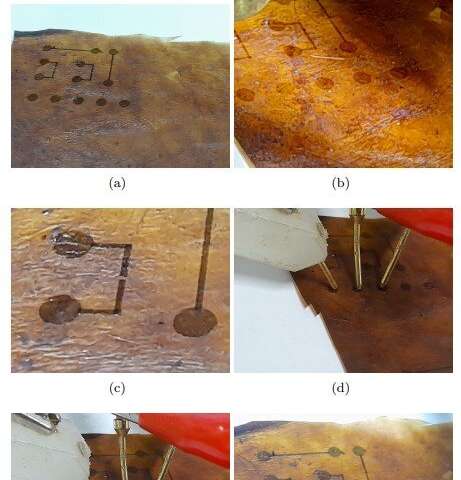Best of Last Week—Ancient Roman phallus, using kombucha to make circuit boards, differences in COVID-19 vaccines

It was an interesting week for human behavioral studies as a combined team from Newcastle University and University College Dublin reported that a discarded Roman artifact found at the Roman fort of Vindolanda in the U.K. may have been more than a good luck charm—it might have been used as a sex device. Another team, made up of researchers from the University of Colorado Boulder, used their heads to haul logs long distances to learn how ancient people carried more than 200,000 logs over 60 miles to a place known as Chaco Canyon. Located near the border of Colorado and New Mexico, the site was once home to ancient people who used the logs to build great houses.
In technology news, a small international team of material and computer engineers tested the possibility of using kombucha SCOBY mats to make electronic circuit boards. And a team of AI scientists affiliated with institutions in the U.K. and Japan found evidence suggesting that 39% of the time currently spent on domestic chores could be automated within the next decade. A combined team from Universidad Autónoma de Madrid and Universidad Rey Juan Carlos designed and built a robot to help firefighters during indoor emergencies by showing what is going on in the environment and by clearing paths. And a team at the Surface & Nano Materials Division at the Korea Institute of Materials Sciences designed and built a neuromorphic semiconductor device that they claim achieved the world's highest handwriting pattern recognition rate.
In other news, a team at West Virginia University gave the first law of thermodynamics a makeover by filling in some of the blanks for systems that are not in a state of equilibrium. Also, a team at the University of Copenhagen found that a large portion of a diabetic's insulin dose is unlikely to work as expected because medical scientists have miscalculated how insulin works in the body. And an international team of earth scientists showed that 18 meltwater lakes in Greenland collapse during winter, pushing the edges of the ice to flow faster, leading to a speed-up of ice rushing to the sea. And finally, a study conducted by a combined team from SAHMRI and Flinders University revealed fundamental differences in how the AstraZeneca and Pfizer COVID-19 vaccines impact the immune system.
© 2023 Science X Network